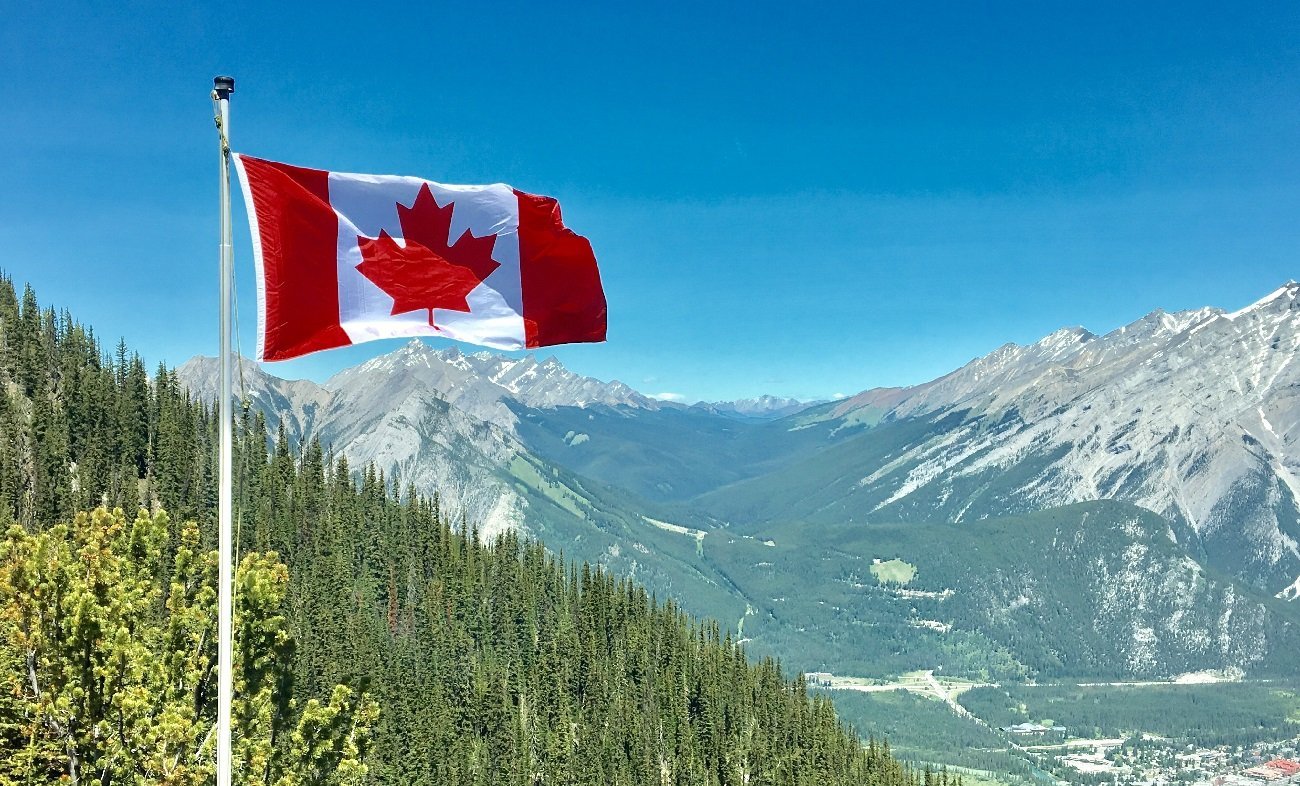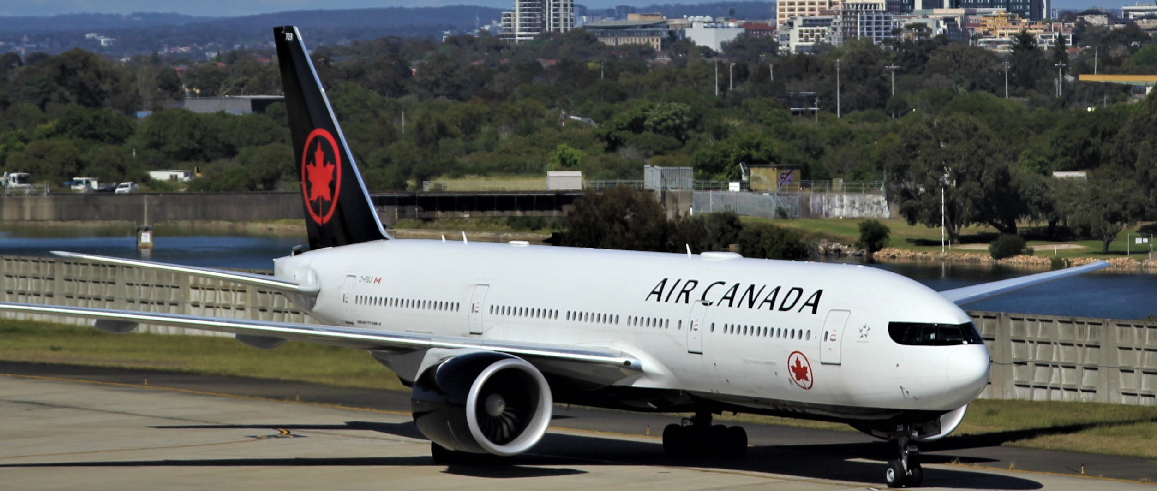Canada Visitor Visas
A visitor visa, or temporary visitor visa, is an official document for nonimmigrants that permits them to stay in a country for a certain period. This nonimmigrant visa is included in your passport. It shows that the applicant meets the requirements to enter a country.
At the Immigration Advice Service, our team of highly skilled and professional immigration lawyers helps you take care of your future. Our top priority is helping you get through the application process successfully. Call us on 0333 305 9375 for immediate help and assistance with your situation. We’re here to help you in person, via the phone, or online.
Read our 1001 reviews
Request a call back from our immigration experts
Benefits of Choosing IAS‘ Canada Immigration Lawyers
When it comes to obtaining a Canada visa or permit, IAS Canada immigration lawyers are well-equipped to help you.
With IAS’ track record of successfully helping clients visit or immigrate to Canada successfully, we can help you achieve your goal.
Our dedicated immigration lawyers provide our services through a comprehensive and personalised approach. With IAS, you enjoy:

Compassionate support from an experienced immigration lawyer dedicated to your success



Support in gathering supporting documents and completing a high-quality application.



Confidence that your case is being handled by an experienced team.



In-house document checks done by lawyers who are well-versed in immigration matters.
Services we Provide
Activities Permitted By A Visitor Visa
The activities permitted by a visitor visa are the following:
- Vacationing
- Tourism
- Visiting family members or relatives
- Visiting friends
- Attending business meetings
- Negotiating a business contract
- Holding consultations with a business associate
- Getting medical treatment
- Taking part in short-term training
Important:
A potential applicant cannot use this visa to work or study in the country unless it is a short recreational course or a hobby. To study or work in the country, an individual must apply for another visa or have their status changed.
Types Of A Visitor Visa
Different types of visitor visas are available depending on the reason for visiting a country. Nonimmigrant visas are categorized based on travel reasons.
Visitor Visa or Tourist Visa:
Visitor or tourist visas are issued for visiting and tourism purposes. In Canada, this visa is known as a Temporary Resident Visa (TRV). The rules are determined by the host country’s website or consulate.
Business Visa:
Business visas are issued by the Government of Canada to individuals who wish to conduct business matters and meetings. The activities must not constitute gainful employment or labour.
A business visitor is an individual who comes to Canada for the purpose of participating in international business activities and without entering the labour market.
Work Visa or Employment Visa:
This visa is issued to individuals who wish to work legally in the host country. The eligibility criteria vary, and the process can take anywhere from 10 days to 3 months. To apply for a work permit, a potential applicant must have a genuine job offer. A foreign worker in Canada is authorised to remain in Canada for a limited time period.
Transit Visa:
This visa is common for countries with emphasised political security. The transit visa is issued to individuals landing at a Canadian airport and moving further within a short period of time. The maximum length for this visa is three days.
Single, Double, Multiple-Entry Visa:
These three types of visas are self-explanatory. A single entry visa means that an individual can enter the country just once. Double entry allows the individual to enter two times. Multiple entry visas enable the individual to enter the country as often as they wish during the visa’s valid period.
Sponsored Family Visitor Visa:
The sponsored family visitor visa allows individuals that are sponsored to visit their family members living outside the country. Individuals eligible to sponsor applicants are spouses, common-law partners, parents, grandparents, relatives, and children.
Each of the countries you apply for has different eligibility criteria.


The Difference Between A Visitor Visa and Visitor Record
A visitor visa is an official document required by visa-required countries for individuals to enter the country for a certain time period. A visitor visa is stuck to your passport, including the date by which you are required to arrive.
On the other hand, a visitor record is a document issued by border services. This document aims to extend or restrict your stay in the country. Unlike the visitor visa, this is an independent document, meaning it is not placed in your passport.
Canada Tourist Visa Requirements
Overview
To qualify for a Canada Tourist Visa, a potential applicant must meet the following requirements:
- A valid travel document or Canadian passport
- No criminal record or immigration-related convictions
- Be in good health
- Convince the immigration officer that they have ties – job, family member, or financial assets that will take you back to your country
- To convince the immigration officer that they will leave Canada at the end of your visit
- That they have enough money for their stay
To enter Canada, most applicants may also need an invitation note or medical exam.
Who Is Not Allowed in Canada?
A potential applicant may not be permitted to visit Canada for the following reasons:
- Involvement in criminal activities
- Violation of certain human rights
- Part of organised crime
A potential applicant may also be denied the opportunity to enter Canada for health, security, or financial reasons.
People Affected by the Russian Invasion of Ukraine
If you are affected by the Russian invasion of Ukraine, you can apply for Canada Ukraine authorisation for emergency travel (CUAET).
Individuals are allowed to come to Canada temporarily if they are:
- A Ukrainian national
- A family member of a Ukrainian national
This emergency travel option is available to all Ukrainians wishing to come to Canada temporarily. There is no limit to the number of people who can apply. The Refugee Protection Act aims to protect refugees, asylum seekers and other threatened individuals.
The CUAET represents a temporary pathway for Ukrainian refugees seeking temporary residence. The CUAET enables all Ukrainians and their immediate family (regardless of nationality) to stay in Canada for up to 3 years.
This special program enables applicants without a passport to apply. The Government of Canada also encourages employers to support Ukrainians with job offers.
Electronic Travel Authorisation
Applicants may need to check whether they need a visitor visa or an electronic travel authorisation. The entry documents applicants need to provide depend on:
- The type of travel document the applicants plan to travel with
- The country that issued the travel document
- The applicant’s nationality
- The applicant’s method of travel to Canada
As of July 2013, Canada began to issue electronic passports. An electronic passport or biometric passport is an international travel document. After your regular passport expires, you can replace it with this ePassport.
How Long Can You Stay in Canada as a Visitor?
Most visitors are allowed to stay in Canada for six months.
The border office services may allow applicants to stay for more or less than six months. In that case, they will set a date by which applicants may need to leave. Applicants may also be given a visitor record showing the exact date.
Upon arrival, applicants’ health will be assessed.
If the applicants show symptoms of COVID 19 will not be allowed to enter Canada. All international travellers must abide by testing and quarantine requirements for safety reasons. Canadian citizens, protected refugees, and people registered under the Indian act will be allowed to visit Canada if not fully vaccinated.
Even if the applicants do not show symptoms, they will have to fulfil quarantine requirements, which include 14 days of isolation. The plan for this is mandatory; if the applicants do not have a plan, they might not be allowed to enter the country.
If the applicants want to prolong their visitor stay, they are required to apply for an extension 30 days before their visa expires.
There is a chance that the applicant may be required to show up in person and have their fingerprints and photograph taken at the biometric collection service point. As of December 2019, applicants within Canada are required to give biometrics as well.


The Application Process: Steps Explained
Overview
Applicants may apply for a visitor visa online or on paper.
In order to apply online, applicants must have:
- Access to a scanner or camera to create electronic copies
- A valid credit card
In order to apply on paper, applicants must follow the steps written in the instruction guide. Before starting the visa application process, international travellers must select the exact country/territory they are applying from in order to get specific instructions.
Here are the things you should know prior to starting the application process.
Family members are required to complete their application process separately; however, application forms should be submitted together at the Visa Application Centre (VAC) or online. One payment receipt should be used.
If you plan to work or study for a period of 6 months, you will need a medical exam. Canadian students 18 years of age and older must bring a valid study permit or an invitation letter as proof that they were approved to study or work.
Step 1. Gathering The Documents
Travellers applying outside the borders of Canada may use the Document Checklist to assist them in gathering the necessary travel documents. Depending on the country of origin, individuals may be required to submit additional documentation.
Applicants from inside Canada are required to use the Document Checklist – Applicants in Canada to gather the necessary documents.
Minors (under the age of 18) travelling alone or with someone other than their parents or guardians should submit a signed letter of authorisation. It should include the name of the person responsible for the minor.
The language selection in which the documents must be submitted is in English or French. Applicants should not translate the documents themselves.
The processing time might be delayed if the applicant does not provide all the necessary documents.
Step 2. Completing The Application Form
The following categories represent forms that must be filled out and submitted:
- Application for Temporary Resident Visa
- Family Information
- Document Checklist
- Document Checklist – Applicants in Canada (if applicable)
- Statutory Declaration of Common-law Union (if applicable)
- Use of Representative (if applicable)
- Authority to release personal information to a designated individual (if applicable)
Before entering Canada, you may be required to fill out supporting documents upon request of a visa officer.
You are required to fill out all sections of the application form. If the category does not apply to your case, you should write N/A (not applicable). The form must be signed and dated.
Step 3. Paying The Fees
Applicants will be met with two types of fees:
- Application processing fee
- Biometrics fee
Below are the prices for fees:
Application Processing Fees:
- Visitor Visa (including super visa) per person: $CAN 100
- Visitor Visa per family (1 fee per family of 5 or more): $CAN 500
- Transit Visa: Free
Biometrics Fees:
- Biometrics fees per person: $CAN 85
- Biometrics per family (2 or more people): $CAN 170
Regardless of the final decision, fees will not be refunded. However, if you are a citizen of a visa-exempt country, you will not have to pay processing fees.
To pay fees, an applicant must have:
- A valid email address
- Access to a printer
- A credit card, Debit MasterCard, or Visa Debit Card


Step 4. Submitting The Application
The final step includes submitting the application online or at a Visa Application Centre (VAC). You should check whether you have:
- Submitted all of the necessary documents
- Paid the application fee
- Submitted any supporting documents
To shorten the wait time, you can pay your processing and application processing fees at the same time. Applicants should also check the “Date modified” section for any major changes that have occurred.
Processing Time
The processing time can take anywhere from 8 to 40 days. The Canadian Government might take longer to process your visitor visa due to a high influx of applicants across different categories.
Applicants may also be asked t go to a visa interview. During the interview, applicants will be asked questions to verify the documents and details they have provided.
Circumstances that may delay the processing time are:
- Unclear photocopies of documents
- A medical condition that requires additional tests
- A security problem
- Verification of your information
- Consultation with other officers.
Arriving in Canada
Although you are approved, a valid Temporary Resident Visa is not a guarantee of entry to Canada. The officer at the port will make the final decision. Travellers must also plan to arrive and depart from the same Canadian airport. Domestic transfers are not permitted.
Do Permanent Residents Need A Visa?
Temporary resident visas (TRVs) are not issued to permanent residents (PR). If you are currently outside the country and without a valid permanent resident card, you must apply for a permanent resident travel document (PRTD).
Extending Your Canada Visitor Visa
If you wish to prolong your stay in Canada, you can file for an extension by filling out the IMM 5708 Form. If you are approved, you will receive a visitor record.
What are the requirements to prolong your stay?
- You need to be currently in Canada
- Your passport must remain valid for the extended period
- You will need to pay an associated fee
- Your other permits should remain valid and not interfere with your visitor visa.


Reasons You Might Be Denied
Here are the reasons why you might be denied a Canada Visitor Visa.
- You misunderstood the test for issuing a visa.
According to the IRCC, rejections have increased to one-in-four since 2018. This application process is required from people who are more likely than not to overstay in Canada, meaning that there is a risk of not returning to their home country.
- You submitted ONLY the documents on the IRCC checklist.
The documents required by the IRCC are:
- Forms
- Fees
- Photos
- Passport
- Financial support
- Return ticket
- Additional documents
It is often the case that submitting ONLY the documents above-mentioned is not sufficient. It is recommended to present as much evidence as possible that proves you are eligible. To qualify, you will need to prove that you:
- Will leave at the end of your approved stay in Canada
- Have enough financial means to maintain you during your stay
- Will not study or work without authorisation
- Have no criminal record
- Do not pose a threat to the Canadian public
- Possess all of the required documentation with you
- Are in good health and not a health risk to the Canadian public.
- You did not submit enough evidence proving that you will return home.
Many potential applicants fail to include all of their home connections that serve as crucial evidence of their return. Naturally, obvious connections include your property and employment.
However, these are not the only two ties that applicants need to mention. They should include information such as copies of title deeds or any lease agreements. These documents should be translated. Also, documents that identify you as a permanent employee, the length of your employment, your role in the company, and so on can significantly contribute to the application.
Other ties include membership in a community organisation, care for an elderly family member, etc.
- You failed to submit your affidavits.
Submitting a sworn affidavit represents strong legal evidence. If an applicant has a family member or a friend that can support their connections to home, the applicant should consider submitting their sworn affidavits as documentation for the TRV.
This is considered more powerful than a letter of invitation by a Canadian citizen because it has legal power. There are legal consequences for those who swear a false affidavit, which makes this stronger evidence than support letters.
- Your invitation letter did not contain sufficient information/details.
For international travellers looking to visit Canada, it is highly advisable to show that you are secure in terms of food and lodging. A letter of invitation from your family and friends might contribute. However, a problem may arise when this letter does not contain enough information.
An invitation letter should not be brief. Rather, it should be detailed and state all of the necessary information about your plans in Canada. Additionally, the invitation letter must be signed by an individual, containing their contact information and address.
How Can IAS Help?
Our IAS team consists of professionals well-versed in immigration law. Our top priority is helping individuals get through the application process successfully. Our expert lawyers will provide you with guidance and up-to-date information on your case.
Our accredited immigration lawyers have helped more than 5,000 applications to be approved.
Our offices are located throughout the United Kingdom and Ireland, and our clients can count on quality services and positive experiences. Our team approach your case with the utmost care, diligence, and professionalism.
Call us on 0333 305 9375 for immediate help and assistance with your situation.
We’re here to help you in person, via the phone, or online.
Table of Contents
Table of Contents will appear here.Legal Disclaimer
The information provided is for general informational purposes only and does not constitute legal advice. While we make every effort to ensure accuracy, the law may change, and the information may not reflect the most current legal developments. No warranty is given regarding the accuracy or completeness of the information, and we do not accept liability in such cases. We recommend consulting with a qualified lawyer at Immigration Advice Service before making any decisions based on the content provided.
Frequently Asked Questions
Yes. Even though you have a USA visa, you will need to apply for a visitor visa to transit through or travel to Canada. The document you need depends on:
- The type of travel document the applicants plan to travel with
- The country that issued the travel document
- The applicant’s method of travel to Canada.
In order to apply, you must have a valid Canadian passport from a visa-exempt country, a valid credit and an e-mail address. It costs £5 to acquire an eTA, and it only takes a few minutes to complete an application form. An approved eTA is valid for 5 years.
A visa-exempt foreign national is an individual who is not a Canadian citizen or permanent resident and does not require a visa to enter Canada. If entering by land or sea, these travellers do not need an eTA.
Normally, applicants cannot enter Canada with a passport that expires in less than six months. However, it should be noted that this six-month rule in Canada is prone to change depending on your country of origin.


What our clients are saying
How our UK Immigration Lawyers can help
At the Immigration Advice Service our lawyers specialise in a wide range of UK visas, nationality and asylum applications and have represented clients in various successful complex and high-profile cases.















